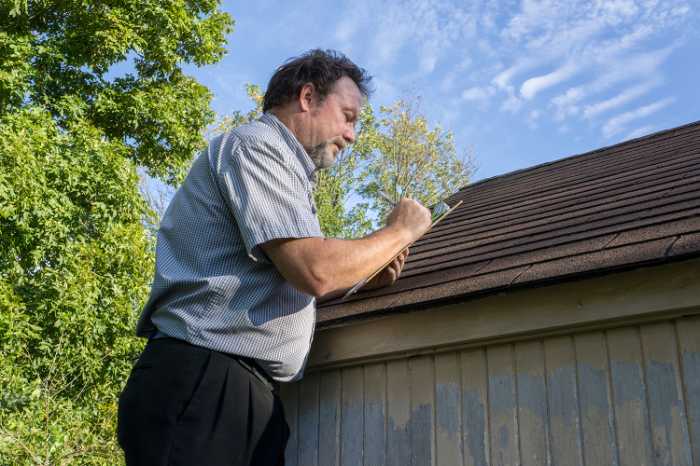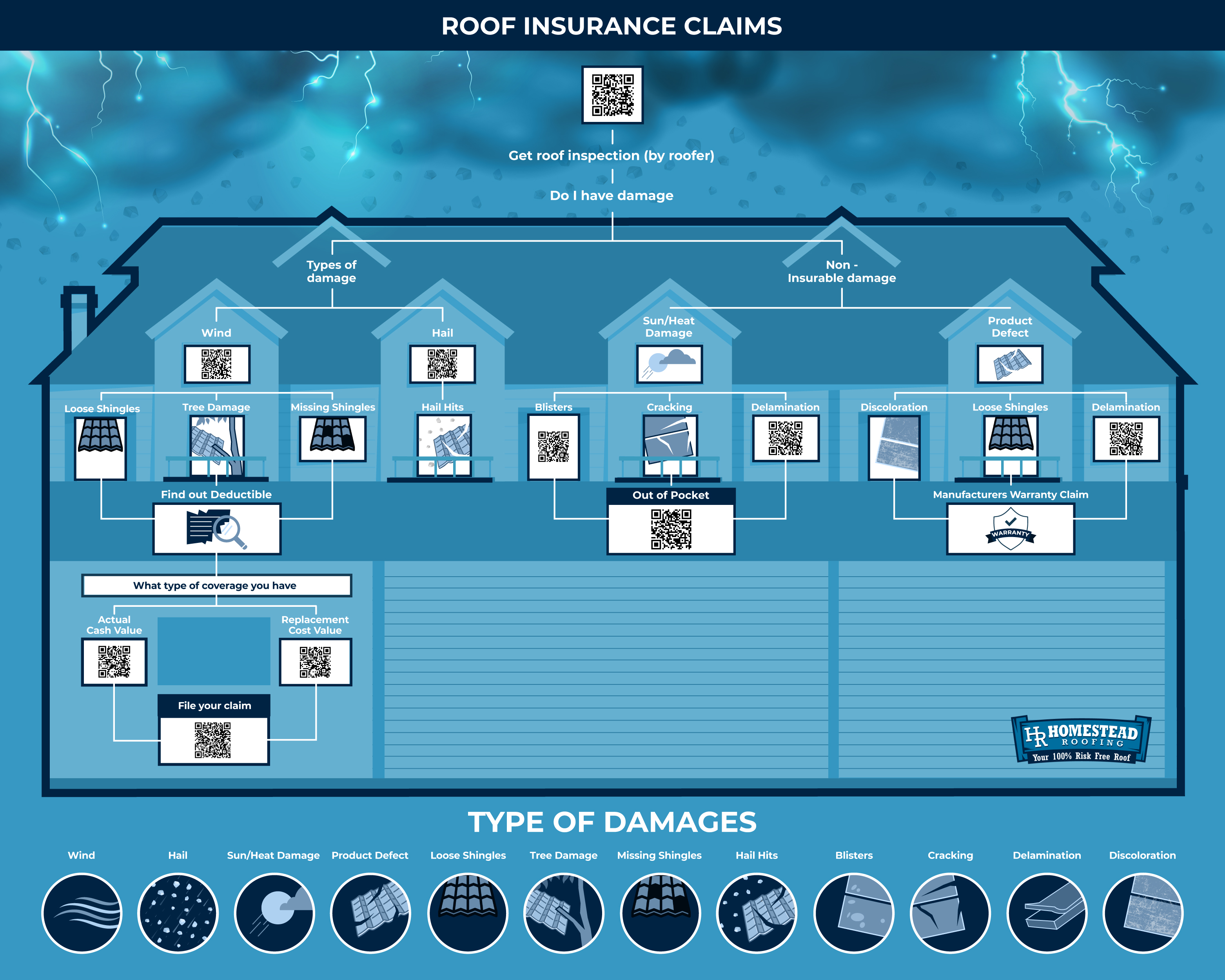Insurance is supposed to protect you, but what happens when your insurance company denies your claim? We all know that insurance companies are not always on our side. The sad truth is that they can be extremely difficult to deal with. So, how do you make sure that your claim gets paid and that you’re not left high and dry?
There are specific steps that you can take to increase the likelihood of getting paid for your claim. The best part is, these steps don't require any special knowledge or experience, they're just simple things that anyone can do. If you're wondering how to get paid actual cash value on your next homeowner's insurance claim, here are a few most important things to keep in mind:
Both You and your Insurance Agent Must Understand Your Policy Thoroughly
This is probably the most important thing to remember. If you don’t understand your policy, how can you expect your insurance company too? There are 4 ways that an insurance company can effectively deny your claim–the 4 D's that you need to watch out for:
Delay Your Claim
Sometimes Insurance companies will try to delay payment. When a pretty clear-cut case that should have taken 30 days or less to settle takes longer, it would be considered a delay.
Deny The Claim
The most common way an insurance company will deny your claim is by flat-out denying it. They may say that it’s not covered under your policy, or that you didn’t follow the proper procedures.
Diminish the Claim
This is when the insurance company tries to lowball you on the payout. They may say that the damage wasn’t as bad as you think, or that it will only cover a portion of the repairs.
Defend
Or make you go to court to get your money.
If you want to avoid having your claim denied, it’s important that you understand your policy inside and out. Know what is covered, and more importantly, what isn’t. This way, you can be prepared for any curve balls that the insurance company may throw at you.
Insurance Companies Mitigate Risks
Insurance companies really understand just one thing and it's risk. Whether it's your auto insurance, homeowner's policy, or health insurance, all they're doing is looking at you and your circumstances, and trying to figure out what's the likelihood that something bad is going to happen, and how much it would cost them if it did.
This concept is called risk mitigation, and it's the basis of everything that insurance companies do. In order to keep their costs down and their profits up, they're always looking for ways to mitigate risks.
As long as you are paying your premiums and not making any claims, you are an asset. But as soon as you make a claim, you become a liability. And the insurance company's goal is to get rid of liabilities as quickly and cheaply as possible.
The way that premiums are calculated is by looking at the risk factors associated with insuring a certain type of policyholder. For example, if you're applying for roof insurance and you live in an area prone to falling debris that could wreck your roof, you will likely have to pay higher insurance premiums because there is more risk involved in insuring your life than someone who does not have any health conditions in their family history.
Consider Getting A Public Insurance Claim Adjuster for Your Insurance Claims
If you have been denied an insurance claim as a homeowner, you may be wondering what to do next. If you're like most people, your first instinct will be to call your insurance company and ask them why they denied your claim. However, this is a big mistake. You should never call your insurance company when you have a claim denial because they are not on your side and will try to find any way possible to deny your claim. Instead, hire an experienced public adjuster who will fight for you and make sure that you get the coverage that is rightfully yours.
Insurance adjusters are the gatekeepers of your claim. They're the ones who decide whether or not you get paid for your loss. And if you don't like what they have to say, you can take it up with them in court.
When you are involved in an accident or have damage to your property, it is important that you contact a public insurance claims adjuster as soon as possible before you file a life insurance claim. The sooner you do this, the faster your case will be processed and finalized, which means that you will be able to get on with your life instead of waiting around for months while the company decides whether or not they want to pay out on your claim.
In most cases, it is best if you contact them directly after an accident occurs. This way there is no confusion about what happened and all parties involved know exactly what happened and what needs to happen next in order for them to receive compensation for repairs from the other party involved in causing the accident or damage.
Make Sure That The Damage Is Covered By Your Insurance Company and Policy
This sounds obvious, but If the damage isn't covered by your policy, then there's no point in filing the claim because it won't be paid for anyway. Check if there are any exclusions or limitations on the types of damage that are covered under your policy. For example, if you have an exclusion for flood damage and your home has been flooded due to a burst pipe in the basement, then it's not going to be paid for by your insurance company unless they choose to waive this exclusion—which doesn't happen very often.
If there are no exclusions or limitations in place then proceed with submitting the claim form after taking photos and following up with any necessary documentation such as receipts or invoices associated with repairs made on damaged items.
If you're not sure or aren't comfortable doing this yourself, get a Public Adjuster! They are here to help you get the most out of your insurance policy.
Check Your Insurance Policy To Know The Type Of Insurance Claim To File
The insurance claims process can be tricky. If you're not sure what kind of claim to file, it's best to consult your insurance company before filing an invalid claim. You don't want to waste time and effort on a form that will be rejected. You also don't want to end up with a higher deductible or other penalties because you filed an invalid claim.
Some life insurance policies will only cover certain types of damage, so it's important to know what you're covered for. If your policy doesn't cover damage from flooding, for example, then don't try to file a flood claim with it!
Prepare Your Documents And Then File A Claim
First, get your documents together. Make sure you have all the necessary insurance information, paperwork, and documentation for your claim before submitting it. If there is anything missing, or if something is incorrect, take care of that first. Then, file your claim with the company.
Next, follow up on your insurance claim online via email or regular mail (if possible). This will help ensure that they have all the information they need to process your request quickly and accurately, which will make them more likely to approve your claim.
Appeals Process
So you've been denied. Now what?
If you don't agree with the decision made by your insurance company, you can appeal their decision. The appeals process will vary from company to company, but in general, you will need to submit a written request for an appeal along with any additional documentation or evidence that you have to support your case.
Once your appeal is received, it will be reviewed by someone who wasn't involved in the original decision. They will take a fresh look at your case and make a new determination based on the information that you provide.
If you're still not satisfied with the result of your appeal, you can escalate it to a higher level within the company or even file a complaint with your state's insurance department.
Filing an insurance claim can be a stressful process, but it doesn't have to be. By following these tips, you can make the process go as smoothly as possible and get the compensation you deserve.
Conclusion
Filing an insurance claim can be a daunting task, but if you keep these in mind, you will be well on your way to getting the compensation you deserve. And if you need any help, don't hesitate to contact a public adjuster—they're always happy to help!
If you have made an insurance claim and looking for a roofer to help repair or replace your roof look no further than us here at Homestead Roofing, we are your roofing experts. If you have any questions about your roof or insurance claims feel free to contact us today!




